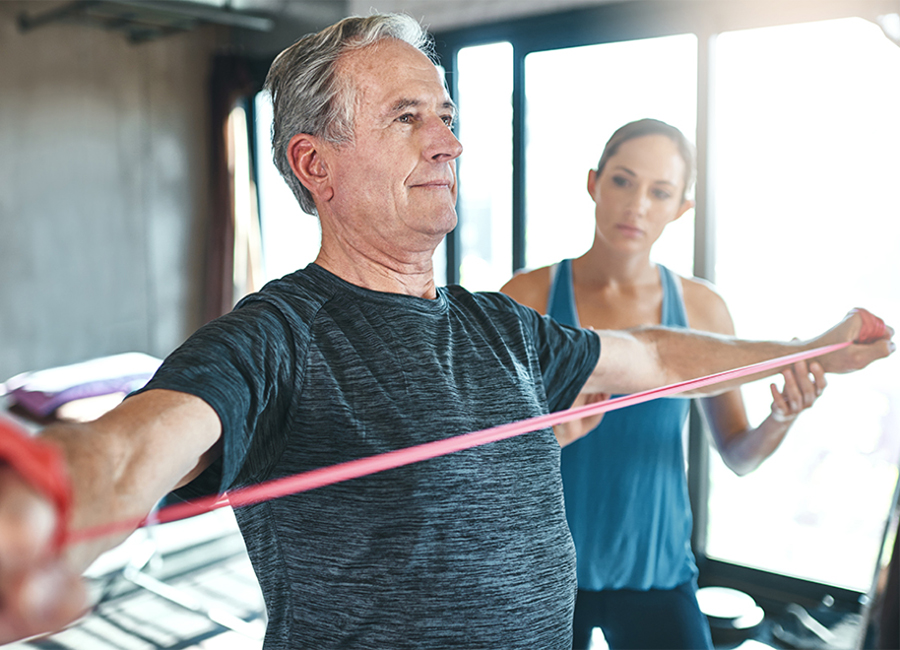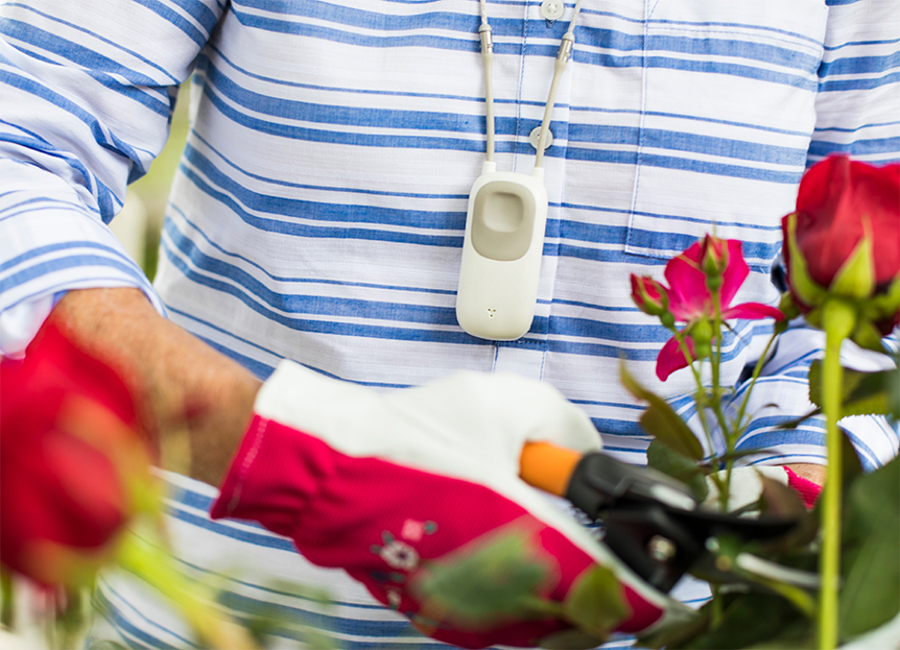5 Ways to Age Well When Living Alone

1. Stay socially engaged.
“Social isolation and loneliness decrease our satisfaction with life and increase symptoms of mental illness…and symptoms of illnesses and pain,” notes JanaLee Wagner, DSW, MSW, LICSW, owner of New Pulse Counseling. “Social activity increases physical health, decreasing risks for many diagnoses older Americans [experience] like heart disease, strokes, and diabetes among many others. And those who are socially active have faster recovery periods for acute illnesses and surgeries.”
That’s why, she says, “everyone needs to have friends and socialize. Join a club, go to the Senior Centre, use an app to make and maintain friends.” You can find in-person groups in your area and online communities accessible from anywhere. Social platforms like Facebook keep many solo seniors connected to people near and far.
2. Design for aging in place.
Growing older in our own homes increases our sense of autonomy and independence. It can also help us feel less isolated and lonely. As our needs change, our living space should change with us.
By reducing your risk and identifying tripping hazards in your home, you will be able to prevent injuries and maintain an active and independent life. Consider meeting with an occupational therapist or a certified aging-in-place specialist for insights from skilled professionals.
See more ideas for how to make your home safer from simple changes to larger projects

3. Work out for physical and cognitive health.
No matter what your age, it’s important to maintain a healthy heart and body. But practicing a balanced fitness program can be vital for seniors. Regular exercise helps control cholesterol levels, body weight, and blood pressure. It reduces the risks of stroke, heart attack, hardening of the arteries, and strengthens bones to help fight osteoporosis. Keeping your ligaments, tendons, and muscles strong and limber reduces the risk of injury and allows you to continue to enjoy an active life. Staying healthy helps to maintain your independence.
Just be sure to speak with your physician before starting any new fitness plan to discuss what exercises and what frequencies are right for you.
Discover 14 Exercises for Seniors to Improve Strength and Balance
4. Practice fall prevention.
The best time to protect yourself from a fall is before it happens. Taking these precautions can help you minimize your risk of injury from a fall, which can help you remain more active, retain independence, and stay healthier.
Falls can happen at any age, but luckily, many falls are preventable and don’t have to be an inevitable part of aging. Your doctor’s office or local council on aging can recommend a community-based program, but you might also pursue an individualized fall risk assessment and balance training from a physical therapist, and a home safety evaluation from an occupational therapist. Practicing fall prevention is an important factor in aging well – and something we can adopt today.
Check out our Fall Prevention Guide

5. Invest in security and peace of mind.
Older Adults treasure their independence. But living alone is not risk-free. An unexpected fall or medical emergency can leave you cut off from the help you need. Any delay in receiving medical care can result in complications, jeopardize recover and put continued independence at risk.
A medical alert system ensures that help is seconds away for any kind of emergency, from feeling dizzy to experiencing loneliness or recovering from a fall. A solution with automatic fall detection can summon help even if you don’t press the button.
Learn more about Lifeline’s medical alert system options
CARP members get 20% OFF the monthly service fee*
*Offer available at locally participating programs and valid for new activations only. Not to be combined with any other offer. Some restrictions apply.
